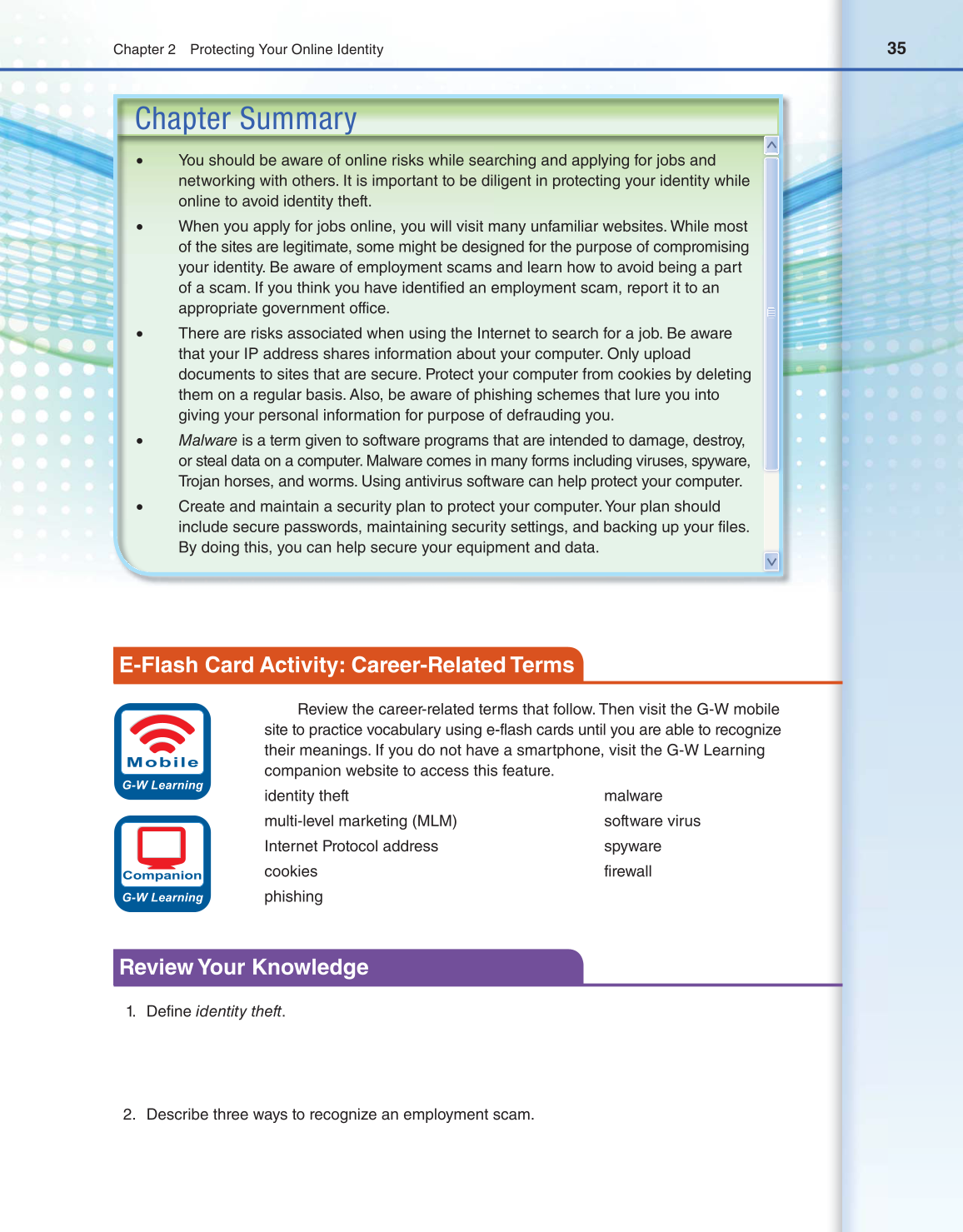• You should be aware of online risks while searching and applying for jobs and
networking with others. It is important to be diligent in protecting your identity while
online to avoid identity theft.
• When you apply for jobs online, you will visit many unfamiliar websites. While most
of the sites are legitimate, some might be designed for the purpose of compromising
your identity. Be aware of employment scams and learn how to avoid being a part
of a scam. If you think you have identified an employment scam, report it to an
appropriate government office.
• There are risks associated when using the Internet to search for a job. Be aware
that your IP address shares information about your computer. Only upload
documents to sites that are secure. Protect your computer from cookies by deleting
them on a regular basis. Also, be aware of phishing schemes that lure you into
giving your personal information for purpose of defrauding you.
• Malware is a term given to software programs that are intended to damage, destroy,
or steal data on a computer. Malware comes in many forms including viruses, spyware,
Trojan horses, and worms. Using antivirus software can help protect your computer.
• Create and maintain a security plan to protect your computer. Your plan should
include secure passwords, maintaining security settings, and backing up your files.
By doing this, you can help secure your equipment and data.
35
Chapter 2 Protecting Your Online Identity
1. Define identity theft.
2. Describe three ways to recognize an employment scam.
Review the career-related terms that follow. Then visit the G-W mobile
site to practice vocabulary using e-flash cards until you are able to recognize
their meanings. If you do not have a smartphone, visit the G-W Learning
companion website to access this feature.
identity theft
multi-level marketing (MLM)
Internet Protocol address
cookies
phishing
malware
software virus
spyware
firewall
